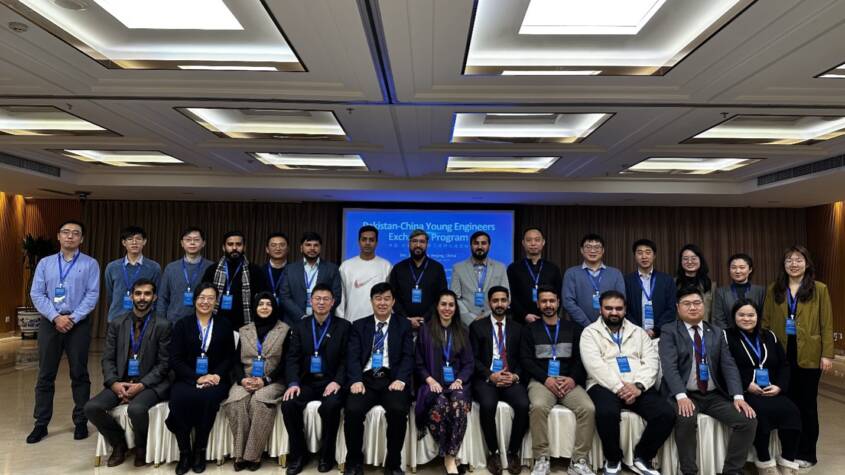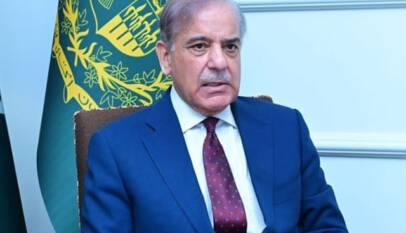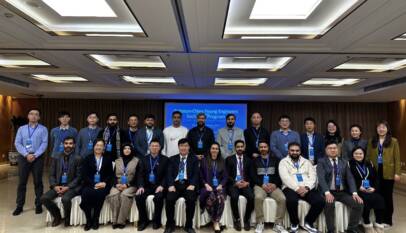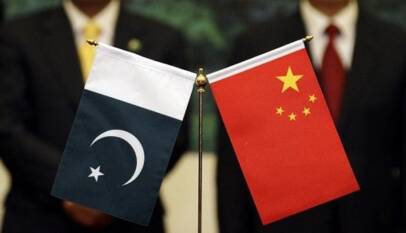China-Pakistan Young Engineers Exchange Program held in Beijing
The China-Pakistan Young Engineers Exchange Program, held in Beijing from December 22-26, brought together nearly 40 engineers and professionals from over 20 institutions in both countries to enhance collaboration in water management, hydropower, and energy innovations. Organized by the Chinese Society of Engineers and the Pakistan Engineering Council, the program featured expert lectures, interactive discussions, field visits, and research tours. Participants explored topics like floating photovoltaic systems, pumped storage, dam safety, and energy storage technologies. Experts from top Chinese universities and companies shared insights, while engineers like Moaaz Awan and Aliyan Syed highlighted innovative solutions for Pakistan’s energy challenges. This initiative strengthened bilateral engineering ties and advanced the implementation of the China-Pakistan engineering cooperation MoU.
BEIJING, Dec 31, (Gwadar Pro)-The China-Pakistan Young Engineers Exchange Program, organized by the Chinese Society of Engineers and co-organized by the Chinese National Committee on Large Dams and the Pakistan Engineering Council, was held in Beijing from December 22-26.
The program brought together experts and engineers to discuss water management, pumped storage, and hydropower innovations. It focused on connecting engineering theory with practice, taking into account the participants’ professional backgrounds and real-world work.
Activities included expert lectures, interactive discussions, visits to universities and research institutions, and field trips to hydropower stations. These activities aimed to promote mutual learning among young engineers from both countries and improve their ability to tackle complex engineering challenges.
Moaaz Awan from the Karot Hydropower Project shared his thoughts on energy generation in Pakistan with Gwadar Pro. He said the installation of floating photovoltaic systems, or solar panels on water bodies, could be a promising solution to the country’s energy challenges. “These systems increase energy production while saving land, which is especially important in a country with limited arable land. Feasibility studies for such projects are already underway in various regions of Pakistan,” he explained.
Aliyan Syed from the Bhasha Hydropower Project added, “During the program, we discussed pumped storage as a game-changer for Pakistan’s energy needs. It offers a sustainable way to stabilize the grid, integrate renewable energy, and reduce reliance on fossil fuels. With its mountainous terrain and existing hydropower infrastructure, Pakistan has great potential to use this technology for energy security and economic growth.”
This initiative marks a significant step in implementing the Memorandum of Understanding on Cooperation between the Chinese Society of Engineers and the Pakistan Engineering Council. It also strengthens engineering collaboration between the two countries.
Nearly 40 young engineers and technical professionals from over 20 research institutions and companies in China and Pakistan took part in the program.
Experts and professors from top Chinese universities and companies, including Tsinghua University, the China Institute of Water Resources and Hydropower Research, China Three Gorges Corporation, and China Beifang Investigation, Design, and Research Co., Ltd., presented and engaged with young engineers on the latest developments in the hydropower sector. Topics covered included cemented dams, rockfill concrete dams, dam safety, new power systems, and energy storage technology.
CM Maryam Nawaz welcomes as Chinese investors agree to invest $700m in Punjab
LAHORE: A Chinese delegation met Punjab Chief Minister Maryam Nawaz Sharif and expressed i…












